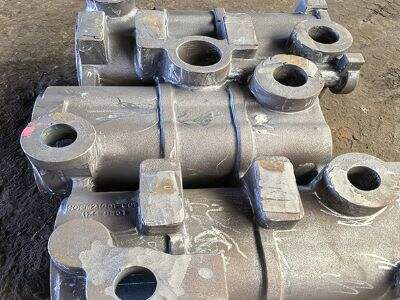Stainless Steel In the production of metal products, there is one material which is very commonly used – stainless steel. A Strong and Resilient Metal: Stainless: This metal has the particularity of being very strong, thus being a recurrent choice.To put it simply, this is a tough customer. Castings with stainless steel: It is another most common use of stainless steel. Castings are formed by pouring molten metal into a mould, where it is allowed to solidify and cool. They are used in various industries such as food and marine industries.
An Overview of Alloy Grades
Many types of stainless steel casting process Grade is a way of classifying different types of stainless steels, based on their composition and properties Specific stainless steel alloys are best for specific applications, such as in the food and marine industries, or similarly corrosive environments. Each of these grades is a combination or alloy of metals that make up the stainless steel and makes it strong and resistant to rust.
The Stainless Steel Grade to Choose for Corrosive Environments
For anyone wanting to select a stainless steel alloy for usage in corrosive surroundings. The type of settings that your stainless steel must tolerate is one large piece of the puzzle. An example of the food industry, which employs for this material in any place, suitable for contact with food acids and salts. Stainless steel is used in marine application where it is crusher resistant and exposed to salt water and humidity.
Which Alloy Grades Are Best?
Sutiable stainless steel alloy grades for corrosive environment are 304, 316, and 316L stainless steel casting, which have zzled many industries for offering excellent resistance to degradation and sturdiness. Typical applications for type 304 include heat exchangers, pressure vessels, food processing equipment, marine equipment, fasteners and architectural components. Stainless steel comes in various grades which differ, not only in terms of their versatility and appearance but which are also generally low-maintenance and easy to clean (additional research available here).
Stainless Steel Castings — An Insight Into Their Suitability
Because they are made from high strength and all-purpose stainless steel alloys, these parts offer the best performance even in the most corrosive of environment. It is these defining characteristics that bestow the chassis with the necessary strength and corrosive resistance to endure exposure to acidic or salt environments, wet conditions. Moreover, the formability of stainless steel casting makes it easy to cast and more versatile for many applications.
Types and Grades of Stainless Steel
Determining the best stainless steel alloy grade for application in corrosive environments requires taking the specific requirements of this material into account. For instance, a food grade stainless steel alloy must contain the proper level of resistance to food acids and salts. A common requirement in the marine industry for a stainless steel alloy grade exposed to seawater and water is resistance.
This summarizes that stainless steel investment casting are good, but with proper selection of suitable alloy grades; they do provide numerous benefits especially when it comes to corrosive environments. Pengxin provide different types of stainless steel alloy grades, these materials are suitable for both food industry and marine sector, as they exhibit strength, durability and resistance corrosion. The future is bright Stainless steel has beautiful qualities that can make your components last long and perform well even in the most severe conditions; as long as you chose the right stainless steel alloy grade for the job.

